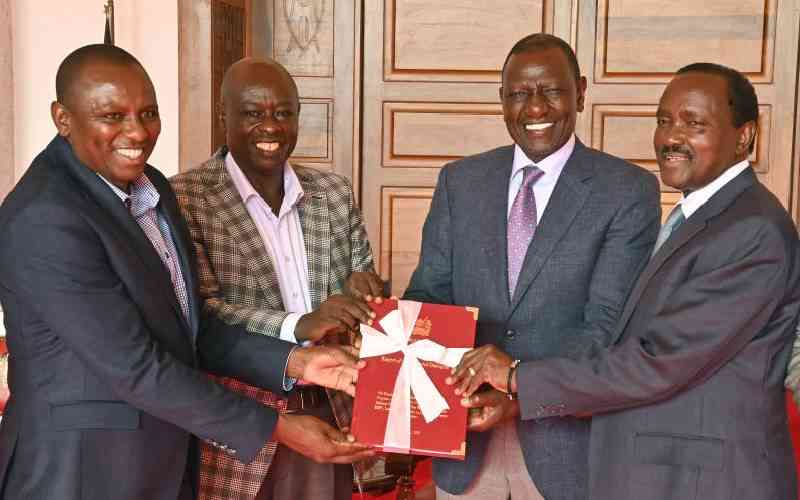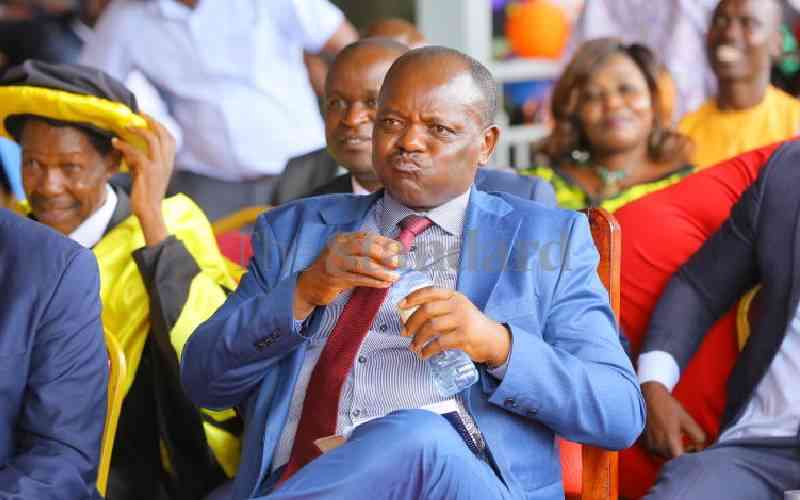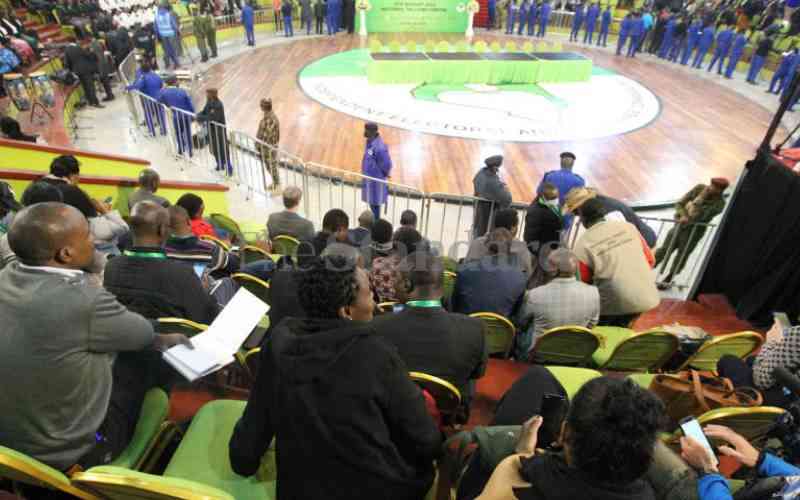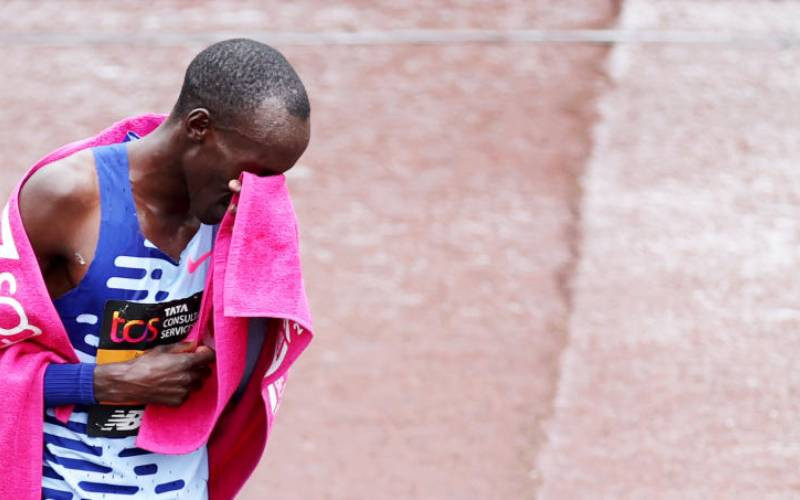NAIROBI: Several State officials could be in trouble over the purchase of poll equipment whose price auditors say was inflated by Sh2.5 billion.
Among those linked to controversial tender include President Uhuru Kenyatta's Chief of Staff Joseph Kinyua, Kenya's ambassador to the United States Njeru Githae, Independent Electoral and Boundaries Commission Chairperson Isaack Hassan and former IEBC Chief Executive Officer James Oswago.
Auditor General Edward Ouko, whose team met lawmakers Tuesday, said the four should be held accountable for committing the taxpayer to an expensive and "inflated" deal for the purchase of biometric kits that eventually failed during the March 2013 General Election.
At that time, Kinyua was Treasury Permanent Secretary while Githae was Finance minister.
In a forensic audit report on the procurement of election materials for the March 4, 2013 polls submitted to the Public Accounts Committee Tuesday, Ouko notes that the country lost billions of shillings due to legal shortcuts, administrative negligence and outright disobedience of Cabinet directives.
The explosive report that is likely to reignite the Opposition's call for disbandment of IEBC details how the Cabinet was duped and the counsel of the Attorney General ignored when the country's the electoral body chose to go ahead with the multi-billion shilling deal for biometric kits.
Kinyua is indicted for failing to advise the Government that the deal was too expensive, while Githae is said to have sidelined the French government which wanted to play a role in the tender.
According to the report, a Canadian firm that brokered the deal got Sh297 million "for no apparent work".
"Going for an external loan caused the Government of Kenya to incur extra costs in terms of loan guarantee paid to Export Development Canada, interest payable to the Standard Chartered London for the next ten years and legal expenses incurred while processing the loan facility," the forensic auditors say in their report.
The auditors say single-sourcing of the kits through a broker within the Canadian government made the Kenyan taxpayers lose Sh2.58 billion.
The report shows that Sh2.5 billion was lost in the deal for the biometric kits because the Government decided to go through the Canadian government, yet nothing stopped them from dealing directly with the French supplier Safran Morpho – from which the Canadian government eventually bought the kits.
"It cannot therefore be said that the GoK got value for its money since there is evidence that the same items could have been procured at lower prices if the Government had dealt directly with Safran Morpho," said Ouko.
PENDING QUERY
The auditors say the prices of the biometric kits were "inflated", and point out that the Government paid hundreds of millions above the invoiced amount in inexplicable circumstances. The cost was Sh6.3 billion, but the Government released Sh6.5 billion.
"We asked about the difference of Sh192.5 million, but we were told it was a result of exchange losses.
Stay informed. Subscribe to our newsletter
For us, that is a pending query because we do not know how that money was spent," Francis Gichunge, the lead investigator into the IEBC procurement, told the committee Tuesday.
The auditors said Oswago "mismanaged" the tendering, making the Government to see the government-to-government deal as a viable option.
They also want him to be held accountable for appointing Decimah M'Mayi and Emmanuel Karisa to the tender committee when they were already members of the evaluation and due diligence committee.
The French government had written to the then Prime Minister Raila Odinga on August 15, 2012, confirming its commitment to support a proposal made by a French company, Safran Morpho.
 The Standard Group Plc is a
multi-media organization with investments in media platforms spanning newspaper
print operations, television, radio broadcasting, digital and online services. The
Standard Group is recognized as a leading multi-media house in Kenya with a key
influence in matters of national and international interest.
The Standard Group Plc is a
multi-media organization with investments in media platforms spanning newspaper
print operations, television, radio broadcasting, digital and online services. The
Standard Group is recognized as a leading multi-media house in Kenya with a key
influence in matters of national and international interest.
 The Standard Group Plc is a
multi-media organization with investments in media platforms spanning newspaper
print operations, television, radio broadcasting, digital and online services. The
Standard Group is recognized as a leading multi-media house in Kenya with a key
influence in matters of national and international interest.
The Standard Group Plc is a
multi-media organization with investments in media platforms spanning newspaper
print operations, television, radio broadcasting, digital and online services. The
Standard Group is recognized as a leading multi-media house in Kenya with a key
influence in matters of national and international interest.








